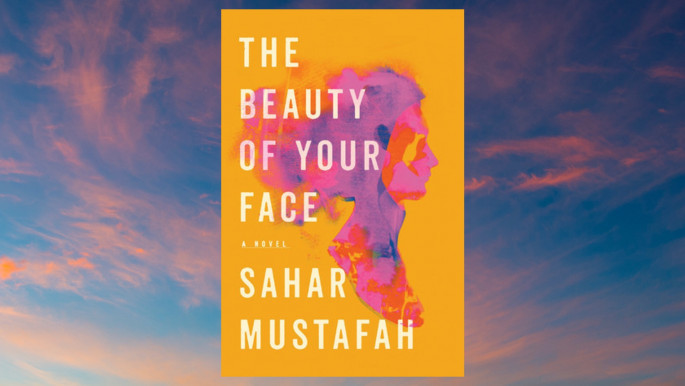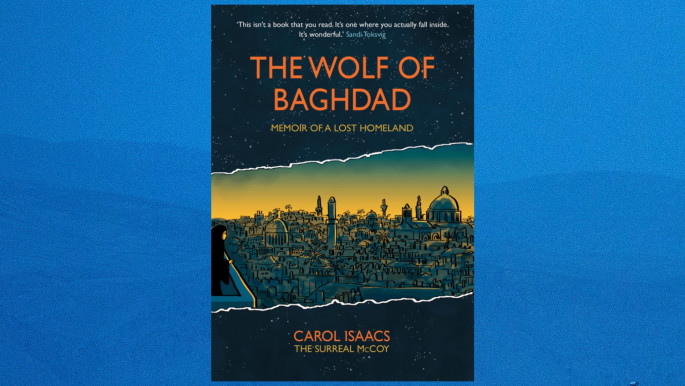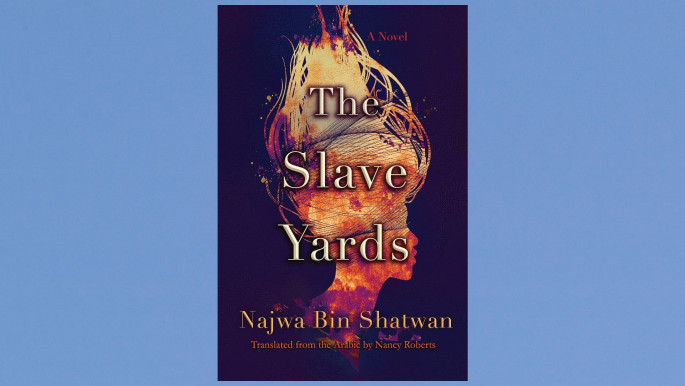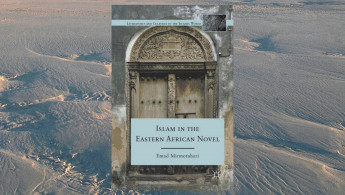Islam in the Eastern African Novel
The common misconception that Islam is the national property of the Arab world has resulted in the study of Islam in African literature being centred heavily on the Maghreb region.
When it does appear in sub-Saharan African discourses, it is mainly focused on West Africa. This leaves the eastern part of the continent out, despite its encounters with Arabs, Indians and Persians, centuries before European colonisation. The result of this centering is the unavailability of rich critical readings of Islam in sub-Saharan Anglophone African literature.
Emad Mirmotahari sets out to rectify this with his book, Islam in the Eastern African Novel. He does so through examining the works of three prominent East African writers – Abdulrazak Gurnah from Zanzibar, Tanzania; Nuruddin Farah from Baidoa, Somalia; and Moyez Gulamhussein Vassanji from Nairobi, Kenya.
Mirmotahari utilises Islam as a backdrop to better understand their exploration of identity, colonialism and pre-colonial era politics and migration. According to Mirmotahari, the main aim of the study is to redress the relative absence of critical discussion of Islam in Eastern African Anglophone fiction.
 |
The book utilises Islam as a backdrop to better understand identity, colonialism and pre-colonial era politics in East Africa |  |
To drive home most of his points, he doesn't just focus on the aforementioned group of writers, rather, he engages with other prominent African writers like Chinua Achebe, Wole Soyinka, Ngugi wa Thiong'o, Sembene Ousmane and even authors from the Caribbean like Edwidge Danticat. He also examines other critical readings of the books highlighted, pointing out parts where the critics failed to exam the impact or presence of Islam and how it contributes to or affects the broader motifs of the stories.
One of Mirmotahari's arguments for this lack of critical examination is that while many critics have managed to disentangle Christianity from its role in colonialism and recognise its contribution to the struggle for independence, this function has not been extended to Islam, largely due to the fear of Arabisation. A pointer to this fact is the influence of Arabic on Kiswahili, the language of the coastal Swahili people.
 |
|
| Read more from TNA's Book Club: The Beauty of Your Face by Sahar Mustafah |
However, Mirmotahari argues that Kiswahili remains a standard Bantu language just as much as English has remained standard despite many lexical borrowings from Latin, French, German, Hindi and even Persian.
Paradise, Gurnah's fourth novel and Vassanji's The Gunny Sack, further highlight Mirmotahari's argument as they depict a multicultural and multi-ethnic African society with languages that have interacted with one another well before the arrival of Europeans. However, societal heterogeneity and Islamic influences do not reduce the Africanness of the people or automatically equate them to Arabs.
In the first chapter, Mirmotahari engages with Paradise using Things Fall Apart by Chinua Achebe and Heart of Darkness by Joseph Conrad; this is because, like Things Fall Apart, many critics have called Paradise a retelling of Conrad's novel.
But Mirmotahari argues that while Paradise debunks the colonial misrepresentations of a homogeneous Africa in Heart of Darkness, it takes a step further, introducing more nuances to what is considered "African": the attitudes of the coastal Muslims towards the "interior" in Paradise is a prototype of the colonial discourse of the "savage" in Heart of Darkness. By highlighting that the concept of colonial is not strange to (east) Africa – despite being problematic – Gurnah achieved a criticism of European colonialism through the adaptation of one of its most prominent tools.
 |
The book aims to redress the relative absence of critical discussion of Islam in Eastern African Anglophone fiction |  |
Another salient motif of Paradise is the constant criticism and confirmation of Islam and as manifested in its main character Yusuf, who is like Yusuf in the Quran (Joseph in Judeo-Christian history). Mirmotahari points us to how the twelfth surah (chapter) of the Quran, the story of Quranic Yusuf, is a constant source of allegory in Paradise.
Yusuf's life in Paradise also follows that of Quranic Yusuf in other ways: the former had vision-like dreams like the latter; the former was sold in bondage like the latter and ended up imprisoned when his master's wife tried to seduce him. Although the story of Yusuf/Joseph is a general reference, the differences that exist in the Judeo-Christian and the Islamic accounts are highlighted in Paradise, giving the allegories some distinct meanings that are better understood when Islam is engaged in the critical readings of the book.
 |
|
| Read more from TNA's Book Club: The Wolf of Baghdad: Memoir of a Lost Homeland |
Similarly, in By the Sea, Mirmotahari notes that Gurnah poses the same challenge to his readers most notably through the relationship between Latif Mahmud's brother Hassan and the Persian merchant Hussein. "Their relationship and disappearance allude to the two brothers revered in Shia Islam. The passage is only controversial and satirical if the reader possesses some knowledge of Islam and especially if the reader is aware that Hassan and Hussein are vital to the distinction between Sunni and Shia Islam and are highly revered in the latter," Mirmotahari observes.
Of all three authors, Gurnah and Farah repeatedly explore Islam as a central framework in their books while Vassanji's writings featured Islam as more of a leitmotif than a central theme. While the absence of any knowledge of Islam or Islamic history does not invalidate all critical readings of Gurnah and Farah's books, excluding Islam from such readings invariably shuts off an important route of interpretation and engagement.
Mirmotahari also shows us how some of Gurnah's other books, Admiring Silence, Memory of Departure and Pilgrims Way resemble Paradise in their engagement with cultural and religious identities and their somewhat anti-nationalist undertones. For example, Daud, the main character in By the Sea could not relate with Black British culture and other Tanzanians who aren't from Zanzibar in Britain, so he found solace in religion. This is because his identity back home is rooted in Islam rather than Blackness, and in Britain he is only seen as Black and never Muslim.
 |
The misconception that Islam is the national property of the Arab world has resulted in the study of Islam in African literature being centred heavily on the Maghreb region |  |
The equation of Islam with Arab culture largely contributed to this, but by critically reading By the Sea readers can identify the dilemma Daud faces in the book. The inability of people to immediately reconcile Blackness and Islam is evident in the discourses that followed Jacob Blake's (Snr) recitation of surah Al-Fatiha after the police shooting of his son, Jacob Blake (Jnr). Many people experienced momentary shock at his recitation because Black people are considered Black and nothing else. Even when, like Daud, Islam has shaped their identity and culture for far longer before realising their 'Blackness'.
In chapter five, Mirmotahari argues that the (mis)perceptions of women in Islam have influenced many critical readings of Farah's From a Crooked Rib. He points out ways in which Farah utilises Elba's devotion to Islam to highlight her struggles and strengths. Mirmotahari argues that Elba has not received as many critical readings as other female characters in post-colonial novels who come from traditional settings like Efwefi and Ezinma from Things Fall Apart, for example.
 |
|
| Read more from TNA's Book Club: The Slave Yards by Najwa Bin Shatwan |
He suggests that this is connected to the perception of Islam as a religion that at its core is at odds with women's agency. By creating a character that can recognise the conflicts she sometimes has with Islam without denying the agency it has given her, Mirmotahari concludes that Farah creates a fertile ground for holistic conversations about Islam; rather than as a show of antagonism towards Islam, which many critics comfortably assume when reading his works, particularly From a Crooked Rib.
Lastly, in his examination of Farah's Variations on the Theme of an African Dictatorship trilogy (Sweet and Sour Milk, Sardines, and Close Sesame), Mirmotahari points out how Farah portrayed Islam as both a tool for political oppression and dissent. A case in point is in Sweet and Sour Milk, where the Generalissimo uses the Islamic concept of qadr (all things happen by God's design) to pre-empt any thoughts of dissent amongst his people.
As if in conversation, towards the end of Close Sesame, Deeriye, the main character, tells a Somali parable about the aboor which shoots down Generalissimo's tool by alluding to the idea that the divine and earthly agencies are not necessarily in contrast. Farah also introduced other characters in Close Sesame who exemplify the fact that Muslim consciousness is at the forefront of political resistance against the oppressive state. All of these undertones surface when the books are read holistically, with Islam as a backdrop.
To conclude, Mirmotahari notes that while Gurnah and Farah incorporate Islam as a backdrop, their books are not about Islam any more than the invocation of biblical motifs make William Faulkner's books about Christianity. While Islam in the Eastern African Novel focuses on the examination of Islam in some novels, readers and critics can superimpose its conclusion when reading other books.
It is vital that cultural and ideological contributions are not ignored - consciously or otherwise - in critical readings so that important conversations that these books seek to initiate are not left buried. This is especially true with the recent rise of #OwnVoices books in the international publishing world.
Aisha Yusuff is a book reviewer with a focus on African and Muslim literature. Her work can be found on @thatothernigeriangirl as well as in digital magazines like Rewrite London.
Follow her on Twitter: @allthingsaeesha
The New Arab Book Club: Click on our Special Contents tab to read more book reviews and interviews with authors:
 |
|



